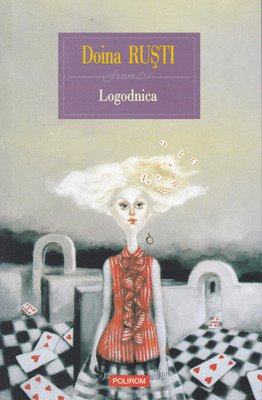The subject
Logodnica/The fiancée
by Doina Ruști
synopsis
David Kinsella is a Norwegian director (originally from Belfast) who experienced a memorable love story. The novel The fiancée turns a real story into fiction.
Structured as a two-part narrative, the novel tells the story from two perspectives, each of them actually representing a confession.
- The first part narrates David’s view: in love with a journalist from Chisinau (Alisa, 24 years old), David (48 years old) goes through numerous stages which determine various connections to this girl. Rejected, then accepted and once again abandoned, he slowly discovers he is nothing but a source of income for her. Gifted with both imagination and intelligence, Alisa invents crises and situations which constantly persuade David to send her more and more money.
The years pass and David is still not cured of this love. He makes a film (Femme fatale) as a therapeutic attempt, but things do not work out the way he planned them. When he loses all contact with Alisa (she’s no longer on Facebook, her phone number no longer exists, he can’t find her in Chisinau etc), David starts to panic. Both loathed and desired, Alisa represents an integral part of his life. His only hope is that she’d search for him one day, and this hope turns into conviction: Alisa is the fiancée, destined for only one man. Sooner or later she’ll return to him. He knows that one day his phone will ring…
- Alisa’s story is different. Finding herself in Vietnam, without any papers or money, she starts considering the people whom she might call and ask for help, situation that marks the pretext for her telling her story. Brought up by her grandmother in Ungheni, Alisa is a Russian in a world of Romanians. Her education is solely provided by a certain Dudu, a shady man and her first boyfriend, whose influence is decisive. Extremely intelligent, she goes to college and obtains a good social status: she has a TV show in Chisinau. She meets David. but seeing as she is only 24 years old, he certainly does not look the part of the man of her dreams. Time, however, changes her aspirations. Fired from her television show, she is ready to accept David’s proposal and move to Norway, but she falls in love with a Russian in Chisinau just before her departure. Her love for Igor represents most of her confession. She is about to marry him and is already pregnant, but the inconsolable David makes a film (Femme fatale) and gives interviews for Chisinau TV, claiming that the movie was inspired by Alisa. Her photograph and name are shown on TV. She is the woman who bamboozled David. Following the scandal, Igor leaves her and Alisa aborts the baby. She considers David to be responsible. From her point of view, all those occurrences presented as impostures by David in part I, are nothing but bad luck, misunderstandings or trifles.
As she recounts the events, Alisa realises there is nobody she could call. The only person available has always been David. She believes life is a circle: no matter the direction, she’d always reach David. So she calls him.
The novel represents a metaphor for the connections between the Eastern and Western Europe. The background of the story tackles many current global issues: the migrants, the turning of the press into an army of spammers, the formalism, the hollow politics etc.
Among real events: Rosia Montana campaign, the Ukrainian revolution, the anti-Ponta campaign, Iohannis’ visit in Norway, Merkel etc.
